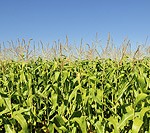 dateline willow lake – Kum ‘N Go is gone, replaced (in name sign only) by Super X. In my South Dakota hometown the once “Ye Olde … Whatever†signs have been replaced by vintage-script “Whatever . . . Shoppe†ones. And I forget how delightful it is to name the surrounding towns: Letcher, Loomis, Woonsocket, Ree Heights, Yale, Carthage, Carpenter and Iroquois, and the still barely 300+ Willow Lake, where I spent most of my first fourteen years, and where today I visit my Aunts Gloria and Rose, my only remaining relatives of my parents’ generation, who live a block apart, or, almost across town from each other.
dateline willow lake – Kum ‘N Go is gone, replaced (in name sign only) by Super X. In my South Dakota hometown the once “Ye Olde … Whatever†signs have been replaced by vintage-script “Whatever . . . Shoppe†ones. And I forget how delightful it is to name the surrounding towns: Letcher, Loomis, Woonsocket, Ree Heights, Yale, Carthage, Carpenter and Iroquois, and the still barely 300+ Willow Lake, where I spent most of my first fourteen years, and where today I visit my Aunts Gloria and Rose, my only remaining relatives of my parents’ generation, who live a block apart, or, almost across town from each other.
I got here via Rapid City, with a detour to climb to the face of Crazy Horse Memorial, part of a 6.2 mile “Volksmarch†allowed two days a year in early June, and a quick jaunt across the state, with a detour to touch a corner of the Buffalo Gap National Grasslands (above) and then drive through Badlands National Monument to Interior, S.D. (listening to Kronos Quartet’s new album Floodplain), and then through Mitchell, S.D., and a quick circuit around its claim to fame, the Corn Palace, and finally directly north to the James River Valley, an area of the state that is as flat as anything I’ve ever seen, so that you wonder what meaning the word “valley†can have in this context, and where grasslands have been replaced by corn. In other words, all things familiar to me from infancy and revisited perhaps twenty times since 1975 when my wife and I picked up and moved to Oregon.
So many Strong Words, so many Memories.
But then, what is this?, short of our hometown, a new sign:
POET BIOREFINING.
 A website away, I find that POET, LLC has spent twenty years “defining the art of biorefining,†that is, the production of ethanol from corn. POET began as a family farm operation in Wanamingo, Minnesota, in 1983, turned commercial operation in Scotland, South Dakota in 1986, and now has some two dozen plants in seven states throughout the Midwest. How have I missed this?
A website away, I find that POET, LLC has spent twenty years “defining the art of biorefining,†that is, the production of ethanol from corn. POET began as a family farm operation in Wanamingo, Minnesota, in 1983, turned commercial operation in Scotland, South Dakota in 1986, and now has some two dozen plants in seven states throughout the Midwest. How have I missed this?
POET brings together disparate politicos such as General Wesley Clark and Newt Gingrich to support agriculture + ethanol and, in the words of General Clark, a “moral purpose†organization like POET, which is set to redefine our country’s freedom (from petroleum products). POET’s new venture, project LIBERTY, marks the transformation of the industry from corn as the primary ingredient of ethanol to “cellulosic” ethanol, a “new frontier,†involving the use of corn cobs, switch grass, wood chips and refuse.
But enough; or, my Words are not enough.
You really must meet POET.
So this is the Prairie POET.
And it is the dream of POET to leave a lasting impression. If I dare summarize such a breathtaking combination of “energy inspired†classic photos, Muzak, Plains-speak language and frog-throated narration: “Just as a poet can take simple every day words and give them new meaning,†POET fuses the energy and inspiration of the “creators,†those who “blend soil, sun and sky,†the “cultivators,†those who use “hearts, minds and hands,†and the “composers,†those who build “harmony between nature and invention,†all in the name of keeping new fuels flowing.
American poets from Emerson to Whitman to Ginsburg have been about new namings, I guess, so why not POET, too.
“It is difficult to get the news from poems,” said William Carlos Williams, yet women and men “die every day for lack of what is found there.” Difficult to get commerce from poems, too?